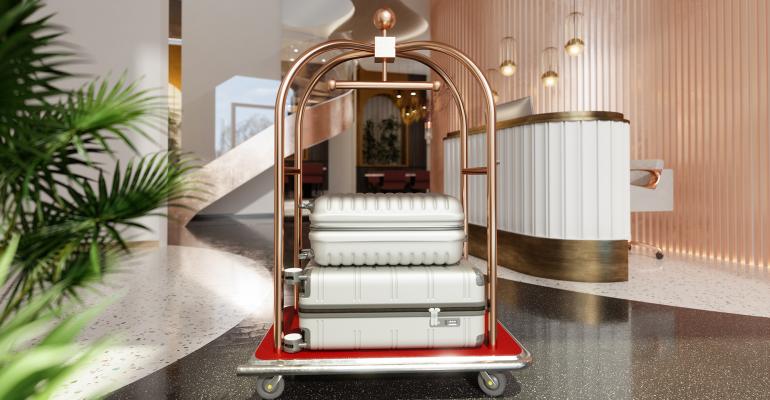The hotel sector has its ups and downs and has experienced uneven effects in the past few years. And high-net worth investors are eagerly putting money into a certain kind of full-service hotel. They are signing on as limited partners to buy resort hotels in vacation locations—the kind of hotels that have been fully-occupied with rising rents ever since people got back in airplanes after the coronavirus pandemic.
These deals make sense for both buyers and sellers, even though rising interest rates has made buying properties much more expensive. Rising incomes from full-service resort hotels—and the expectation that incomes will keep rising—help buyers secure financing without having to push sellers to cut prices.
“The resort hotels, which were already doing pretty well six months ago, are doing amazingly well,” says Brian Young, executive vice president chief investment officer at Hospitality Ventures Management Group (HVMG), an owner and manager of hotel properties based in Atlanta.
High interest rates make deals difficult
Buyers and sellers are still signing deals to buy hotel properties, despite the difficulty caused by rising interest rates.
Investors spent just $2.0 billion to buy hotel properties in February 2023. That’s down 53 percent from the year before, just before interest rates began to rise, according to MSCI, a data firm based in New York City. However, investors spent $1.3 billion to buy full-service hotels in February 2023—more than half of the total they spent on hotels overall—and just 9 percent less than they spent on full-service hotels the year before.
"Leisure travelers are loving full-service resorts which have had a phenomenal run with luxury average daily rates up 20 percent or so over 2019 results," says Jan Freitag, national director for hospitality market analytics at CoStar. "These strong results have attracted new buyers."
For example, Texas billionaire Tilman Fertitta recently paid an estimated $650 million, or $2.5 million per key, for the 260-room Montage Laguna Beach, located between Los Angeles and San Diego.
Hotels set to succeed
Private investors have been increasingly interested in hotels of all kinds. “There has been more private capital interest in the hospitality sector over the last two to three years than I've ever seen in my 20 years of doing this,” says Jared Kelso, executive managing director at C&W Global Hospitality, working in the firm's New York City offices.
“We're doing more and more presentations to private wealth managers and to investment vehicles backed by one or two high net worth individuals who are looking to move aggressively into the hospitality space,” says Kelso
As demand recovers, hotels face almost no competition for guests from new development. Very few projects started construction since the pandemic.
“I see virtually relatively yeah little supply growth for the next two to five years,” says C&W’s Kelso. “It is incredibly difficult and incredibly expensive to finance hotel construction right now and frankly construction costs have gone crazy. We're at a moment in time where it's generally cheaper to buy existing than to build new.”
Despite the interest from buyers, high interest rates have made buyers less willing to pay prices sellers think are fair.
“We see a range of bids on every transaction that that tends to be within 5 to 10 percent of guidance,” says Bob Webster, president of CBRE Hotels Institutional Group, working in the firm's Atlanta offices. That’s a big improvement, however. “Six months ago, that that gap would have been 10 percent or more, so it's definitely coming in.”
However, buyers are still able to find deals, sometimes because a seller is motivated to negotiate because of debt maturity or other challenge. Other times rising room rents at a property like a resort hotel makes a deal more attractive.
“There are deals out there, but you have to be diligent in finding them,” says HVMG’s Brian Young. “You will look at a ton of deals in order to find them.”
HVMG has often used limited-partner equity from high-net worth individuals to buy upscale select service hotels and compact full-service hotels. The firm manages 54 hotel properties and owns about a third of that portfolio. Its limited partners are accredited investors who tend to have often worked with HVMG on past deals and have historically received competitive yields. “Call it upper teens for the annual internal rate of return, if you average it out over the whole hold period,” says Young.





